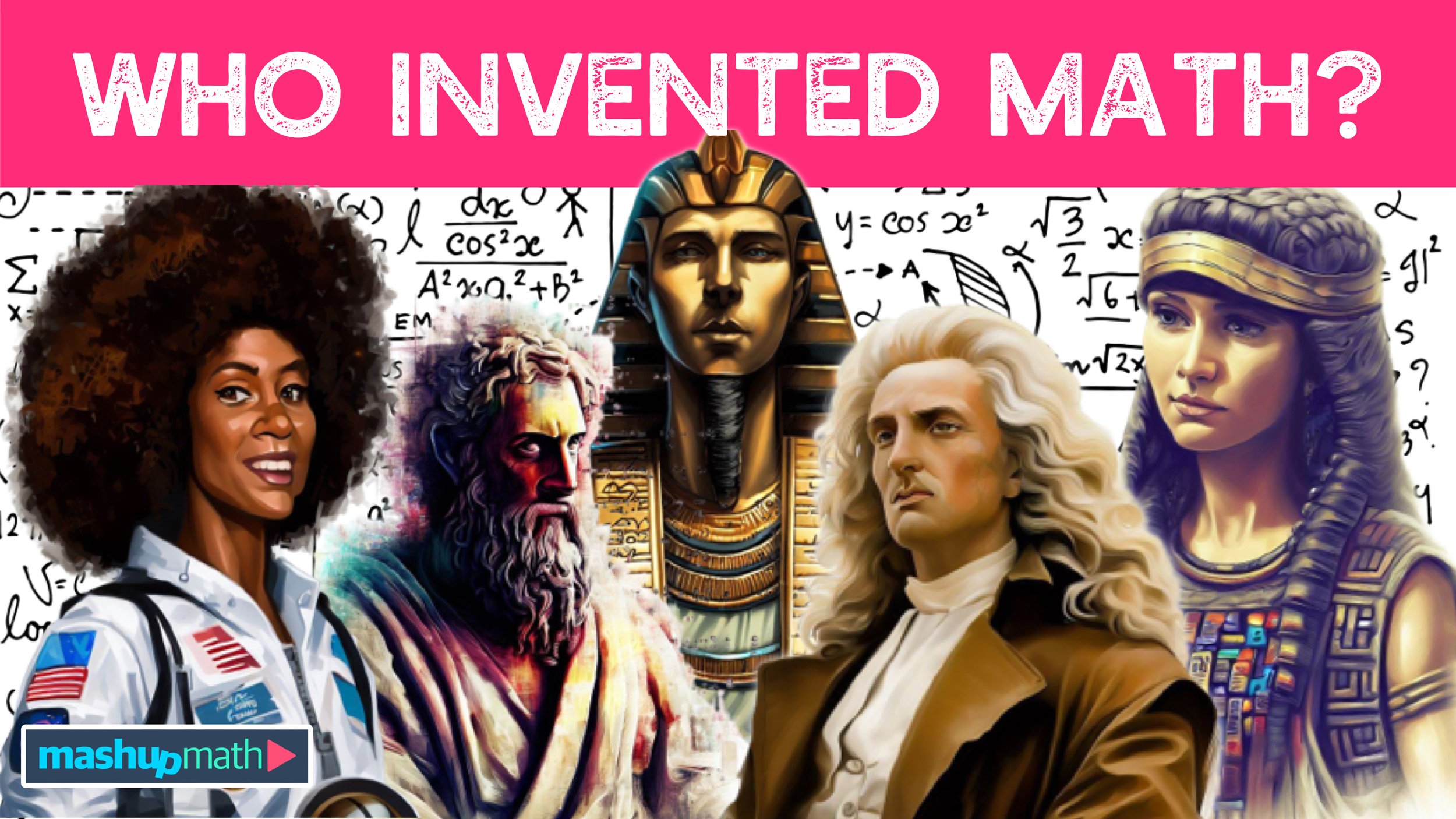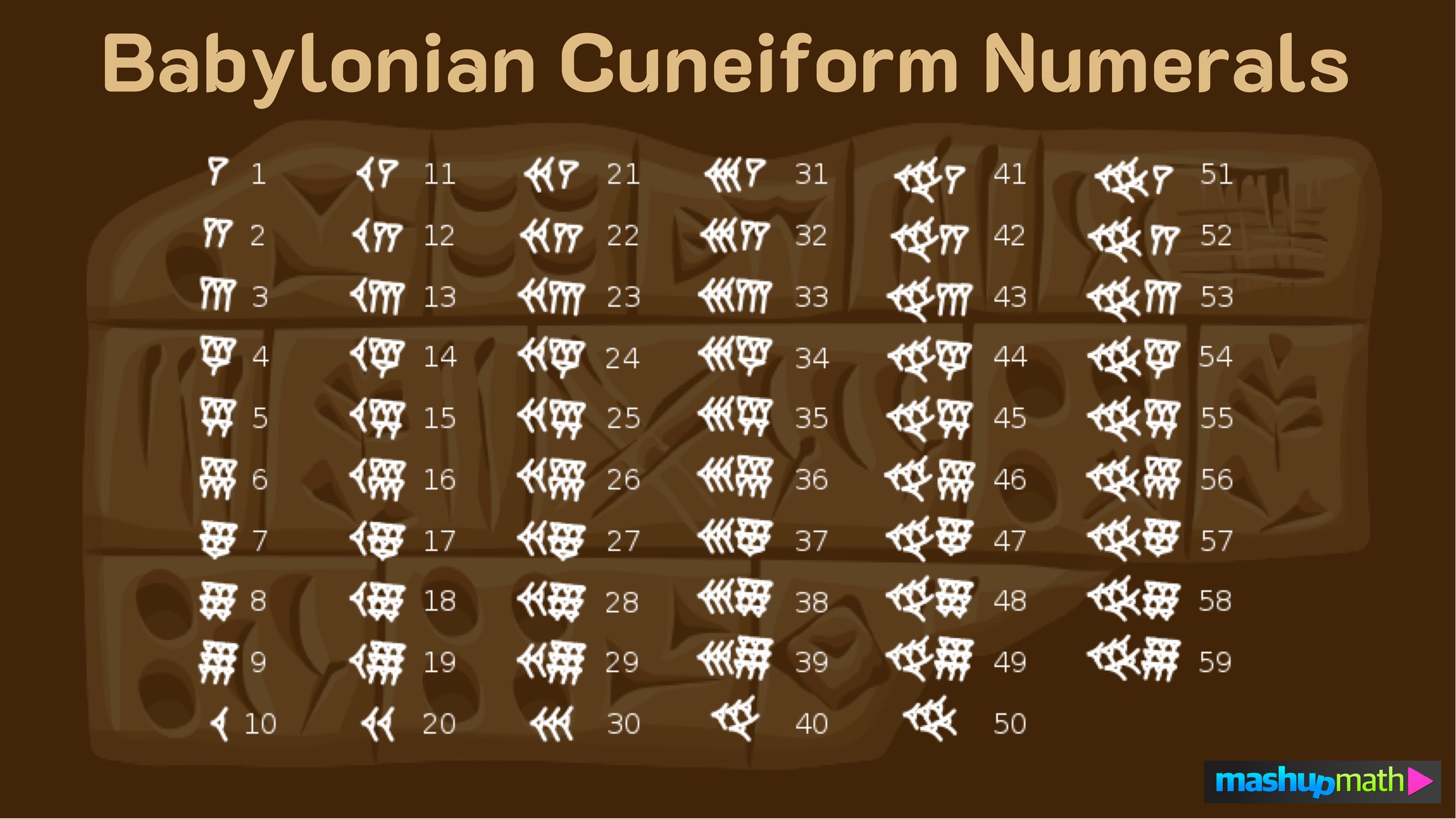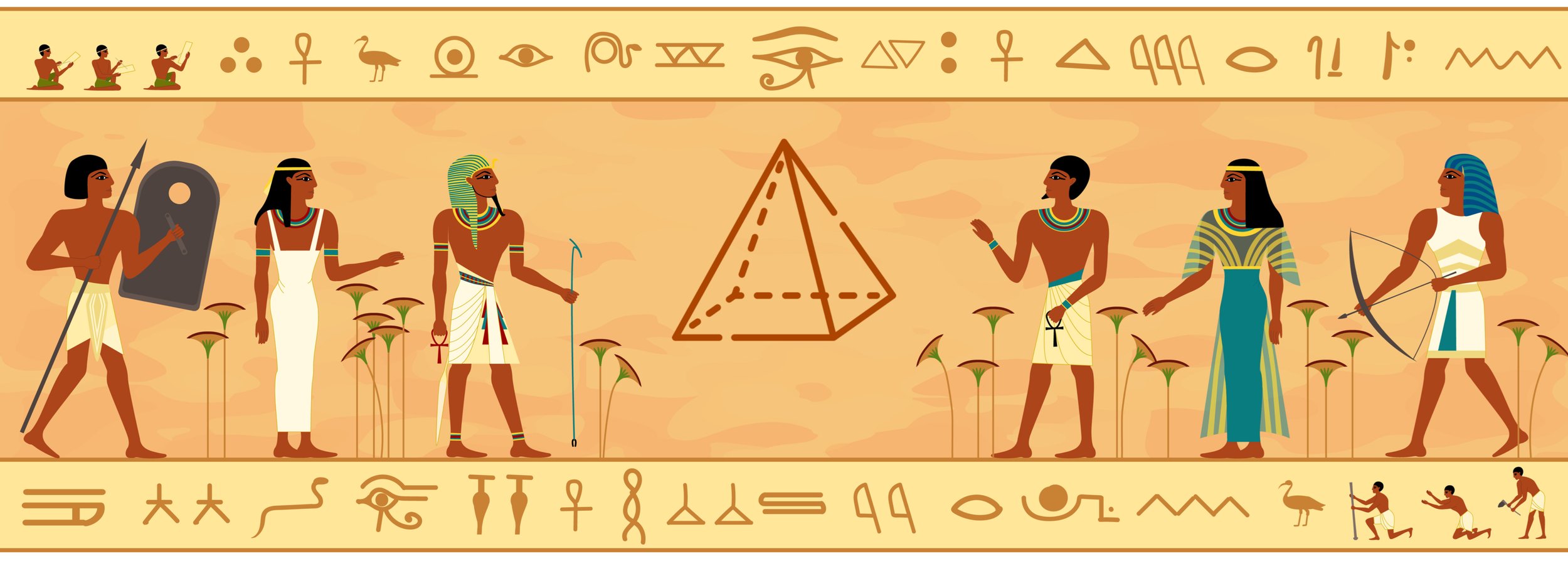Who Invented Math?
A Quick Explanation of the History of Math for Students
Who invented math? Not Pythagoras, but his contributions to the field of mathematics are alive and well today.
The history of math runs deep and spans across a variety of ancient cultures and civilizations, which leads many to wonder who invented math?
Some people might think that mathematics just magically appeared out of thin air as if it were discovered in a dream, and many do believe that mathematics was somehow discovered rather than invented.
Either way, mathematics has not always been as broad and well understood as it is today. In fact, the field of mathematics has been evolving and growing over thousands of years, with contributions from various cultures and individuals.
Let's start our exploration of the question “who invented math?” with the ancient Babylonians, who developed a number system based on 60. This system is still used today in time and angle measurements, which is an absolutely extraordinary fact considering that the Babylonian number system dates back to approximately 1800 B.C. They were also skilled at solving quadratic equations, and they even had a form of algebraic notation. Since you can’t do math without numbers, the Babylonians deserve a lot of credit for laying the groundwork for modern day mathematics.
Who invented math? The ancient Babylonians developed one of the first number systems, but do they deserve all of the credit? (Image: Mashup Math FP)
But who invented math? The Babylonians developed one of the first instances of numbers, but do they get the full credit?
Our next stop along the timeline of the history of math takes us to ancient Egypt. The ancient Egyptians had a great need for mathematics in order to build their pyramids and engineer their complex society, and they developed a system of mathematics that relied heavily on geometry. They were extremely talented at calculating areas and volumes, and they even had a formula for finding the volume of a truncated pyramid.
Who invented math? The ancient Egyptians made tremendous contributions to all fields of mathematics including geometry. (Image: Mashup Math FP)
The ancient Egyptians made some unbelievable contributions to the field of mathematics, but it would be hard to say that they should get all of the credit for inventing math. But who could top the Egyptians?
Enter the ancient Greeks. These folks were absolute legends when it came to contributions in the field of mathematics. Of course, there was Plato, whose study of mathematics led him to classify the Platonic Solids as the building blocks of the universe. But the ancient Greeks also produced some of the greatest mathematical minds of all time, including Pythagoras, Euclid, and Archimedes.
Pythagoras, of course, is known for the Pythagorean Theorem, which is still used today to find the length of the sides of a right triangle. Euclid, on the other hand, is known for his work in geometry, and he wrote a book called "Elements" that is still used today as a textbook in many math classes. And Archimedes? This guy was a true mathematical genius. He made huge contributions to geometry and calculus, and he even developed a system for calculating the volume of irregularly shaped objects.
Who invented math? Any discussion of the history of math must include the ancient Greeks. (Image: Mashup Math FP)
So, who invented math? Not exactly the Greeks, but they deserve tons of credit for advancing the field to entirely new levels.
While the roots of math all stem from ancient civilizations, the history of math continues well beyond ancient times.
Fast forward to the 17th century, and we have the one and only Sir Isaac Newton. Arguably the most famous and influential mathematician of all time, Newton was a true math and science pioneer, and he's responsible for developing the field of calculus. He also made huge contributions to physics and astronomy, so he's basically a superhero in the world of math and science.
Who invented math? Not Sir Isaac Newton—but he is viewed by many as the most influential mathematician of all time. (Image: Mashup Math via Getty)
And let's not forget about another 17th century math legend: Gottfried Leibniz. He also independently developed calculus, which was pretty impressive considering he and Newton were working on opposite sides of Europe at the time. Leibniz was also a philosopher, and he made important contributions to the study of the concept of infinity.
And while this tour through the history of math has so far featured only male mathematicians, there have been tons of incredible contributions made to the field of mathematics by famous women mathematicians like Sophie Germain, Emmy Noether, Katherine Johnson, and Valerie Thomas.
Who invented math? Not Valerie Thomas, but she did use math to invent the illusion transmitter—a 3D imaging technology that was the first of its kind when it was first put into use by NASA in 1980. (Image: Wikipedia Commons)
In addition to famous women mathematicians, the history of math is filled with contributions made by often overlooked African American mathematicians like Fern Hunt, Mark Dean, and Lonnie Johnson, all of whom played a significant role in the progression of the field.
So, now that you have a better idea of the history of math and how it has developed over thousands of years, can you confidently state who invented math?
The answer should be no. Why? Because mathematics has been around for nearly as long as humanity has had a presence on Earth, and it has evolved by leaps and bounds over thousands of years.
History of Math: Math was discovered and developed by many different cultures and individuals throughout history. (Image: Mashup Math FP)
The only way to answer the question “who invented math?“ is to say that math was discovered and developed by many different cultures and individuals throughout history. From the Babylonians to the Greeks to Newton and Leibniz, math has been molded and shaped by countless brilliant minds over the centuries.
In conclusion, mathematics is beautiful and complex field of study, and we owe many men and women gratitude and respect for its development and progression. So, the next time you're struggling through a math problem, just remember that you're a part of a long history of individuals who have been using and refining mathematics for thousands and thousands of years.
Do you want more insights from great mathematicians from history? Click here to see of collection of the 37 Greatest Math Quotes of All Time














